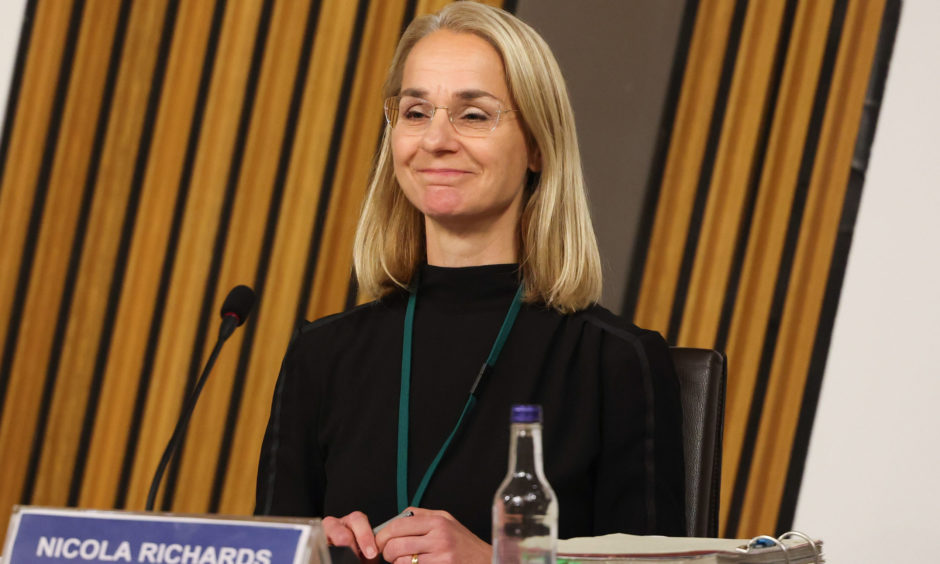The Alex Salmond inquiry will resume in a few hours’ time when a key figure in the Scottish Government investigation into harassment claims against the former first minister gives evidence.
Judith Mackinnon, the civil servant who led the government’s internal inquiry into the allegations against Mr Salmond, is to be quizzed by MSPs.
At first glance Ms Mackinnon’s appearance may not be as “box office” as that of Nicola Sturgeon or Mr Salmond, when they finally take the oath in front of the inquiry later this year.
Nevertheless, her evidence to the committee is likely to be crucial, given that its remit is to investigate how the Scottish Government dealt with its internal inquiry into complaints made against Mr Salmond.
From what we have heard so far, Judith Mackinnon’s involvement was integral to the collapse of the judicial review and with it the denial of fair hearing to the complainers who were left exposed and without due consideration of their complaints.”
Alex Cole-Hamilton, MSP on the Salmond inquiry
The committee was established after Mr Salmond objected to the way the complaints had been handled and took successful civil legal action against the government he used to lead.
A judicial review found that the process had been “tainted with apparent bias”, an outcome that led to Mr Salmond being paid more than £500,000 in taxpayers’ cash to meet his legal costs.
‘Tainted with apparent bias’
In the civil case, Ms Mackinnon’s appointment to lead the Scottish Government’s internal inquiry into Mr Salmond’s behaviour was one of the key considerations of the Court of Session.
The court found the Scottish Government had breached its own procedures by appointing her to conduct an investigation that was supposed to be independent, even though she had already met both women who had complained about Mr Salmond.
Her appointment after her contact with the complainers led to the judgement that the process had been “tainted with apparent bias”.
Lib Dem committee member Alex Cole-Hamilton said: “From what we have heard so far, Judith Mackinnon’s involvement was integral to the collapse of the judicial review and with it the denial of fair hearing to the complainers who were left exposed and without due consideration of their complaints.
“The committee will want to know whether if at any point she recognised that her prior involvement with them was in direct contravention of the new procedure that she had helped design.”
Mr Cole-Hamilton added: “We also need to bottom out the extent of the contact and encouragement she offered complainers to come forward.”
Witness an HR specialist
Unlike other witnesses, Ms Mackinnon will appear remotely and with audio only after a request for her evidence to be heard in that form to the Scottish Parliament authorities. At the weekend it was reported that her evidence is to be heard in that form after she was targeted by social media.
Ms Mackinnon’s name has cropped up in previous evidence given to the Salmond inquiry.
The committee has heard the human resources specialist had been appointed to the post of investigating officer by Nicola Richards, the Scottish Government’s director of people.
When Ms Richards gave evidence to the inquiry, she told MSPs it was thought at the time that Ms Mackinnon was a suitable person to lead the investigation because she had a human resources background with “a wealth” of experience.
But Ms Richards admitted it was now “very clear in retrospect”, following the judicial review, that things could be “interpreted in a different way”.
Ms Richards added: “Therefore that even the contact that somebody had in their role as an HR professional could be misconstrued. At the time that was not a concern we had.”
Ms Richards also admitted disclosing to one of the complainants that Ms MacKinnon would “likely” take the role of senior investigating officer if they did decide to move to a formal complaint.





